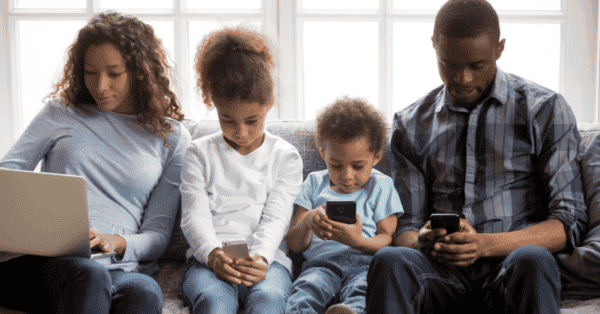How can I spot when my child has had ‘too much’ screen time?
From the American Academy of Pediatrics original stance (1999) stating no screen time for children under two, later updated to a more nuanced approach (2016) in allowing limited high-quality content for children, we now know that all screen time is not equal.
The Royal College of Pediatrics and Child Health suggest that parents approach screen time “based on the child’s developmental age, the individual need and value the family place on positive activities such as socialising, exercise and sleep.”
This well-meaning advice for families alleviates concerns (and guilt) regarding screen-based activities, demonstrates the positive impact of technology and allows parents to focus on context and content of screen time rather than just time limits.
But some parents and carers may still want to know: “when has my child had ‘too much’ screen time?”
As families and children differ, so does the effects of screen time. However, all parents can use these tips as a guideline.
Watch how your child interacts with their device
- Does my child have a tantrum when the device is removed or screen turned off?
- Does my child complain of neck pain or back pain?
- Does my child complain of headaches or eye strain?
- Does my child become aggressive or angry when playing or watching online?
- Does my child often seem over-excited?
- Has my child become disorganized, disobedient, or oppositional?
If the answer to the majority of these questions is ‘Yes,’ then parents should consider supplementing screen time activities with something else.
Recognise when screen time negatively impacts children’s development
- Is my child connecting socially with family and friends?
- Is my child physically healthy and sleeping enough?
- Is my child engaged with and achieving in school?
- Is my child pursuing interests and hobbies (in any form)?
- Is my child having fun and learning in their use of digital media?
If the answer to the majority of these questions is ‘No’, then parents may need to place limits on screen-based activities.
See more ways to manage screen time and tackle ‘too much’ of it.


